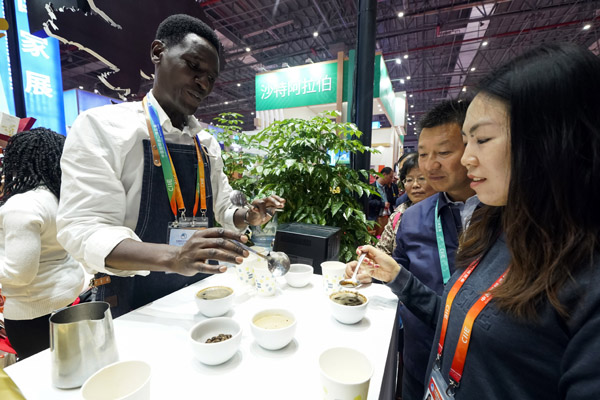Tea-loving nation warms to coffee's call


Esther Lau, an analyst with market research company Mintel, said, "A coffee culture has been developing in China." She believes that the country's massive and rapid urbanization, along with a growing number of Chinese travelling overseas, are the factors behind coffee's rapidly expanding popularity.
Chinese coffee consumption has nearly tripled in the past four years, and the potential for the drink is enormous.
An International Coffee Organization report released last year said Chinese coffee imports grew by 16 percent year-on-year in 2017, compared with about 2 percent in the United States, the world's largest coffee consumer.
Wu, using Colombian coffee as an example, said annual output was less than 400 tons 12 years ago, but is expected to exceed 2,000 tons this year.
But with freshness the key, Colombia is not China's first choice for coffee beans. According to a report by the international trade statistics database UN Comtrade, the top three coffee exporters to the country are Vietnam, Malaysia and Indonesia.
Strong demand
Vietnam is the world's largest exporter of robusta coffee, a sturdy variety of bean with low acidity and a high degree of bitterness.
Nguyen Thi Thu Hang, a senior adviser from Vietnam on export evaluation and capacity building for small and medium-sized enterprises, said high-end coffee shops in general mainly buy arabica beans. However, robusta beans, which are the most cultivated in Vietnam, are cheaper and often used to produce powder for instant coffee.
Vietnamese coffee beans account for 35 percent of those imported by China, which Hang said is down to persistent strong demand for instant coffee, particularly among office workers who are pushed for time.




































